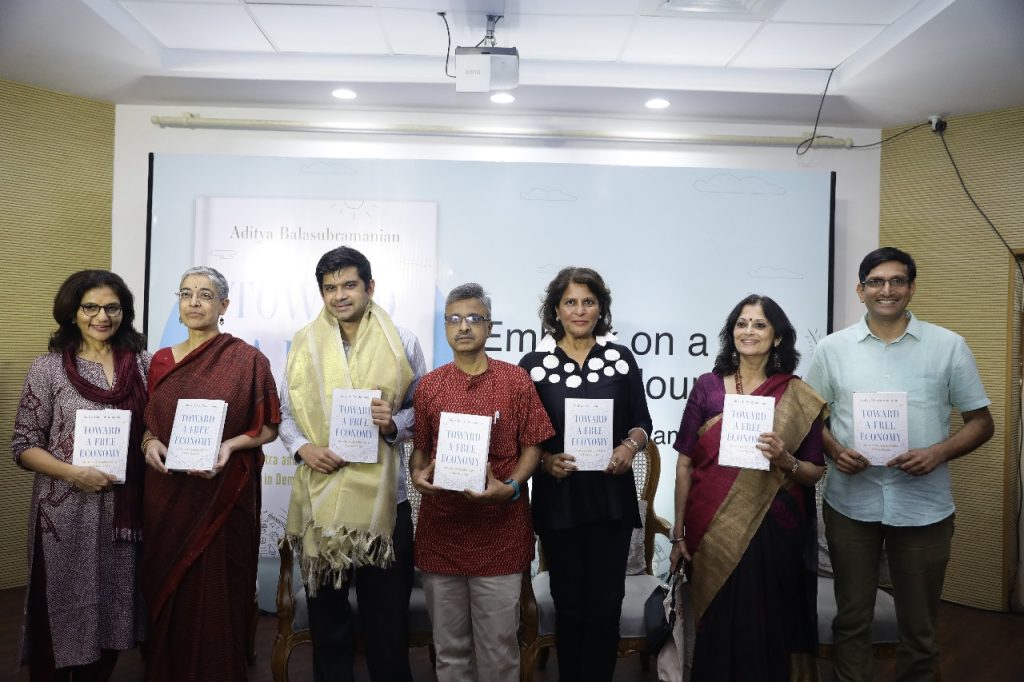Towards a Free Economy: Swatantra and Opposition Politics in Democratic India : by Aditya Balasubramanian (Author)
The unknown history of economic conservatism in India after independence
Neoliberalism is routinely characterized as an antidemocratic, expert-driven project aimed at insulating markets from politics, devised in the North Atlantic and projected on the rest of the world. Revising this understanding, Toward a Free Economy shows how economic conservatism emerged and was disseminated in a postcolonial society consistent with the logic of democracy.
Twelve years after the British left India, a Swatantra (“Freedom”) Party came to life. It encouraged Indians to break with the Indian National Congress Party, which spearheaded the anticolonial nationalist movement and now dominated Indian democracy. Rejecting Congress’s heavy-industrial developmental state and the accompanying rhetoric of socialism, Swatantra promised “free economy” through its project of opposition politics.

Preetha Reddy – Executive Vice Chairperson, Apollo Hospitals Group, Ireena Vittal – Management Consultant, Aditya Balasubramanian – Author and Academic , A R Venkatachalapathy – Historian and Writer, Shobana Kamineni – Executive Vice Chairperson, Apollo Hospitals Group, Meera Balasubramanian – author’s mother, Srinath Raghavan – historian and academic at the function of the reading of the book ‘Towards A Free Economy : Swatantra and Opposition Politics in Democratic India’
As it circulated across various genres, “free economy” took on meanings that varied by region and language, caste and class, and won diverse advocates. These articulations, informed by but distinct from neoliberalism, came chiefly from communities in southern and western India as they embraced new forms of entrepreneurial activity. At their core, they connoted anticommunism, unfettered private economic activity, decentralized development, and the defense of private property.
Opposition politics encompassed ideas and practice. Swatantra’s leaders imagined a conservative alternative to a progressive dominant party in a two-party system. They communicated ideas and mobilized people around such issues as inflation, taxation, and property. And they made creative use of India’s institutions to bring checks and balances to the political system.
Democracy’s persistence in India is uncommon among postcolonial societies. By excavating a perspective of how Indians made and understood their own democracy and economy, Aditya Balasubramanian broadens our picture of neoliberalism, democracy, and the postcolonial world.






